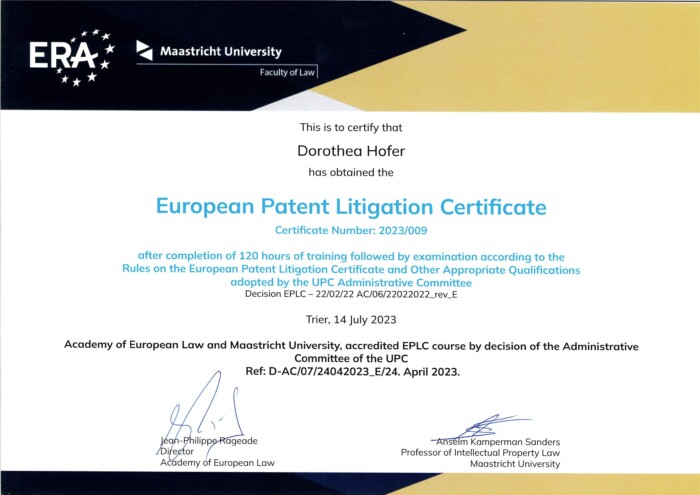
We are delighted to announce that our managing partner Dr. Dorothea Hofer has obtained the European Patent Litigation Certificate issued by the University of Maastricht in cooperation with the Academy of European Law (ERA) in Trier. This includes an extensive practical and theoretical training in the law underlying the Unified Patent Court (#UPC) and related fields of European law.